Five Badger Standouts
WAA recognizes the 2018 Distinguished
Alumni Award recipients.
With more than 440,000 living alumni and a top-tier reputation, UW–Madison has no shortage of exceptional graduates. Selecting the superlative among this crowd is no easy task, but the Wisconsin Alumni Association has offered Distinguished Alumni Awards annually since 1936. This year, WAA’s highest honor acknowledges five alumni who have made stellar contributions to their professions, their communities, and their alma mater.
Carol Edler Baumann ’54
As a former U.S. State Department staffer and board member for numerous diplomatic organizations, Carol Baumann built a network of professional relationships “that helped bring the world to Milwaukee,” according to a longtime colleague.
Baumann earned her doctorate from the London School of Economics and was a professor of political science at UW–Madison and UW–Milwaukee. In 1979, President Carter appointed her to serve as U.S. deputy assistant secretary for the State Department’s Bureau of Intelligence and Research.
At UW–Milwaukee, she directed the international relations major for 17 years and the Institute of World Affairs for 33 years. Baumann built the institute into one of the best of its kind while continuing to teach and inspire students to pursue careers in international affairs and global business. She was the first host of the institute’s television program, International Focus, which is still broadcast on Milwaukee public TV. Baumann also hosted the Dialogues with Diplomats series, which drew ambassadors and other high-ranking officials from around the world, including President Bill Clinton and former U.S. Secretary of State Henry Kissinger.
In 1958 she ran for Congress in Wisconsin’s Ninth Congressional District. Her extensive professional affiliations included the Council on Foreign Relations, the Wisconsin Governor’s Commission on the United Nations, and the National Foreign Policy Association.
Baumann helped facilitate cross-participation in international programming between the Milwaukee and Madison campuses, and she helped to forge a connection between the European Union and the international studies programs at UW–Madison. She retired in 1995 as a UW–Milwaukee professor emerita. Baumann published a novel, Journeys of the Mind, based on her travels and career.
John Bollinger ’57, PhD’61
As dean of the College of Engineering (CoE) from 1981 to 1999, John Bollinger presided over the creation of a familiar college landmark — the Maquina sculpture and fountain on Engineering Mall.
It was just one element of the $16 million CoE expansion to Engineering Hall in 1993. Bollinger’s 18-year tenure as dean also saw many other innovations, including a renovation of the materials science building and a new freshman course that assigned a real-world engineering project from design to final product. The college also instituted several annual competitions that encourage students to invent, patent, and commercialize their own technology. After retiring as dean, he created a new course, Technology Innovation and Entrepreneurship.
Bollinger served as director of the Data Acquisition and Simulation Laboratory and as chair of the Department of Mechanical Engineering before becoming dean. He was a Fulbright Fellow in 1962 and 1980 and he coauthored two textbooks. Among his many patents, he invented a noise-quality detector for electric motors and an automated welder that helped Milwaukee’s A. O. Smith Company in manufacturing automobile frames. He founded and served as editor of the Journal of Manufacturing Systems.
He has served on the board of numerous companies, including Nicolet Instrument Corporation, Unico Incorporated, Kohler Company, and Berbee Information Networks. Bollinger is a member of the National Academy of Engineering, the American Society of Mechanical Engineers, and the American Society for Engineering Education.
A Bascom Hill Society member, he has also generously supported the college financially. In honor of his parents, he established the UW’s Bollinger Academic Staff Distinguished Achievement Award.
He also established several engineering student scholarships.
George Hamel Jr. ’80
When the California wildfires swept through wine country last fall, George and Pam Hamel, co-owners of Hamel Family Wines in the Sonoma Valley, sprang into action. They quickly organized and hosted a benefit with singer John Fogerty in support of wine country wildfire relief, raising more than $1.2 million. For the Hamels, who lost their own home in the fire, it was a typical act of generosity.
The Hamel family, which includes three generations of UW–Madison alumni (and a Badger alum daughter-in-law), has been extraordinarily generous across the campus. They provided the $15 million lead gift for the new Hamel Music Center on campus, as well as the founding gift for SuccessWorks at the College of Letters & Science. They have been longtime supporters of the communication arts department and have provided major gifts to the Department of Athletics, the Garding Against Cancer initiative, the Office of Student Financial Aid, the Memorial Union, and several other UW programs.
Before becoming a vintner, George was a founder and served as COO of ValueAct Capital, a San Francisco–based investment firm.
For the Van Hise Society member, his support of the university has extended to giving generously of his time and advice. He serves on the Chancellor’s Advisory Board, the Communication Arts Partners, and the Garding Against Cancer steering committee, and he previously served on the UW Foundation board of directors and the College of Letters & Science board of visitors.
Ann McKee ’75
Ann McKee has studied hundreds of individuals diagnosed with chronic traumatic encephalopathy (CTE) and is the leading researcher on the degenerative brain disease. CTE is triggered by repetitive blows to the head and is most commonly found in athletes participating in boxing, football, ice hockey, and other contact sports, as well as military veterans. CTE causes symptoms such as cognitive impairment, depression, memory loss, aggression, and suicidal behavior. McKee was lead author on a 2017 study that found that CTE had been diagnosed in 110 of 111 former NFL players whose brains were donated for research.
She has presented her findings to NFL officials and testified many times before Congress. Her research was highlighted on the Frontline special “League of Denial: The NFL’s Concussion Crisis,” as well as in the New York Times, TIME, Sports Illustrated, the Boston Globe, CBS’s 60 Minutes, CNN, NPR, and other outlets.
McKee is a professor of neurology and pathology at Boston University School of Medicine and directs its CTE Center. She’s also the director of the brain banks at the U.S. Department of Veterans Affairs Boston Healthcare System, the Boston University Alzheimer’s Disease Center, and the Framingham Heart Study.
Her game-changing findings continue to make headlines. Her data show that it’s actually repetitive small blows to the head, rather than big, concussion-inducing hits, that have the strongest link to CTE — and that has the potential to drastically change the game of football as we know it today.
In 2018, she received a lifetime achievement award for Alzheimer’s disease research from the Alzheimer’s Association, and she was named by TIME magazine as one of the “100 Most Influential People in the World.”
Allan Chi Yun Wong MS’73
Allan Chi Yun Wong is the founder, chair, and group CEO of the Hong Kong–based company VTech, one of the top 50 electronics manufacturers globally, with more than $1.8 billion in revenue.
After a brief stint at National Cash Register Company, Wong started VTech in 1976 as an electronics company that designed and manufactured home-gaming consoles, including Pong (an early video game based on table tennis).
In its first year, the company expanded from an initial investment of $40,000 to an annual revenue of just under $1 million. Under Wong’s direction, the company later focused on producing children’s learning products and cordless phones. In 1998, Business Week included him on its “World’s Top 25 Executives” list.
Wong serves on the board of China-Hongkong Photo Products Holdings Limited and Li and Fung Limited, and he’s also the deputy chairman and director of the Bank of East Asia, the third largest bank in Hong Kong. His government honored him with the Gold Bauhinia Star in 2008, and the United Kingdom gave him its Most Excellent Order of the British Empire award in 1997. He has an honorary doctorate from the Hong Kong Polytechnic University, and he served as a keynote speaker at the March 2017 Hong Kong chapter UW alumni event.
In 2016, Wong told CNN, “You don’t go into business to make money. You need to love your business, and you need to have passion, and you need to really want to make a difference in people’s lives. And making money is a byproduct, not the sole purpose.”
Published in the Winter 2018 issue
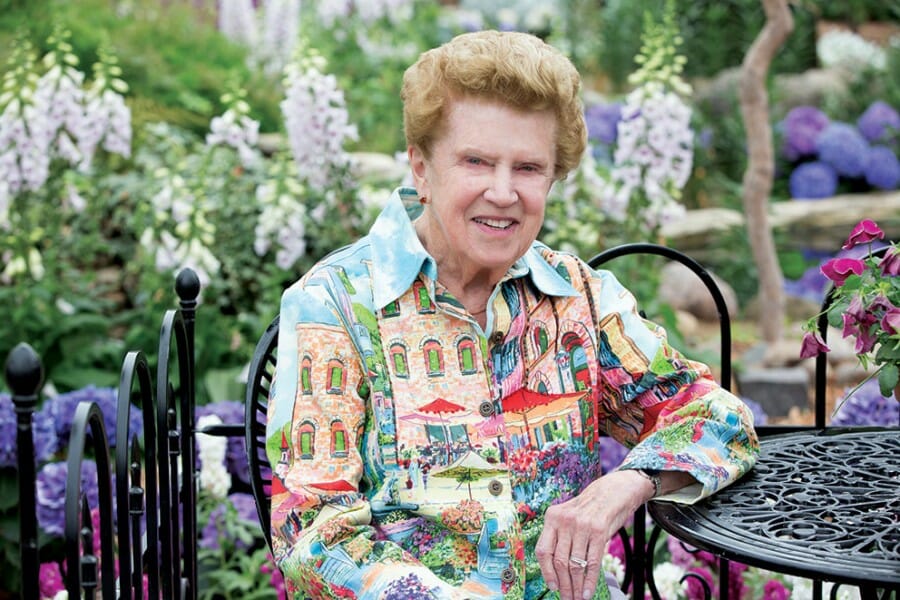
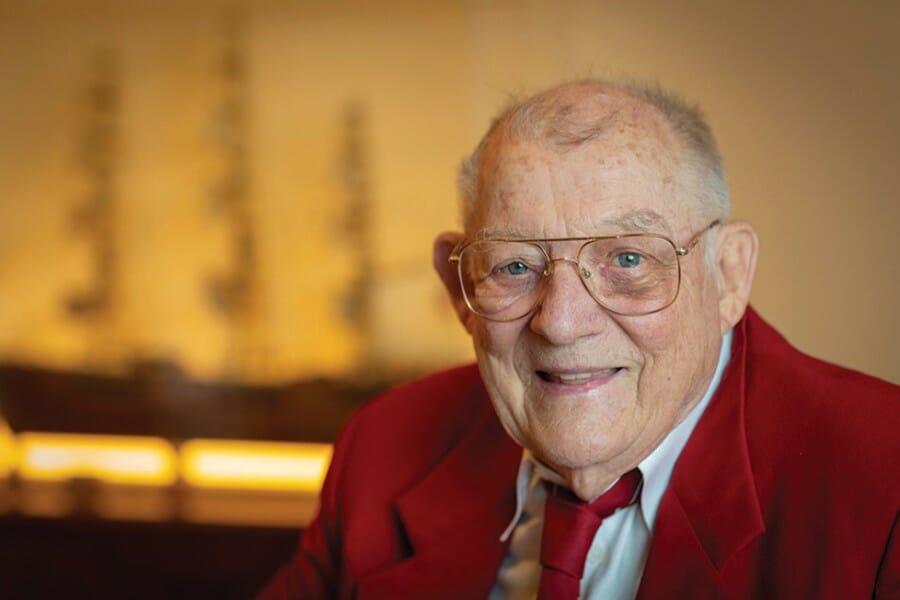

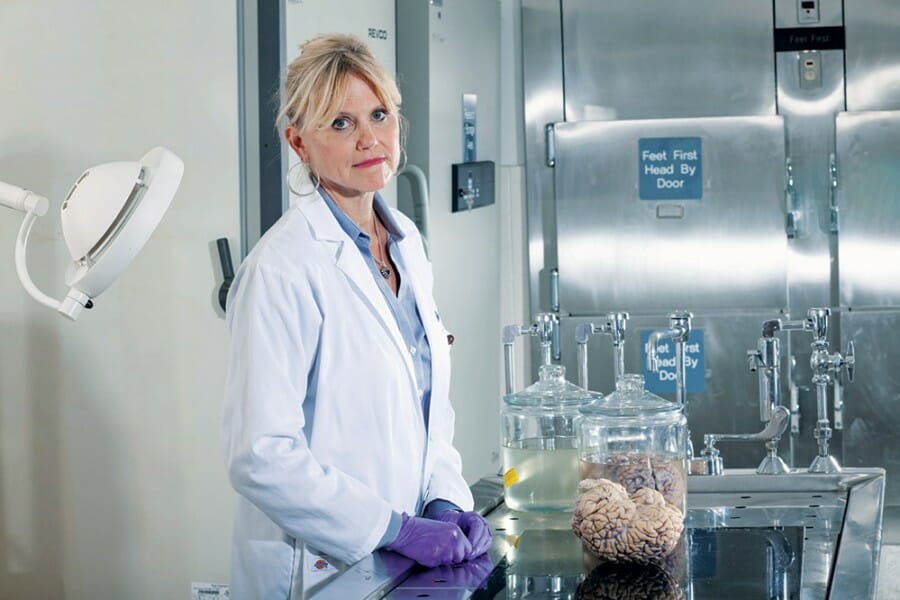
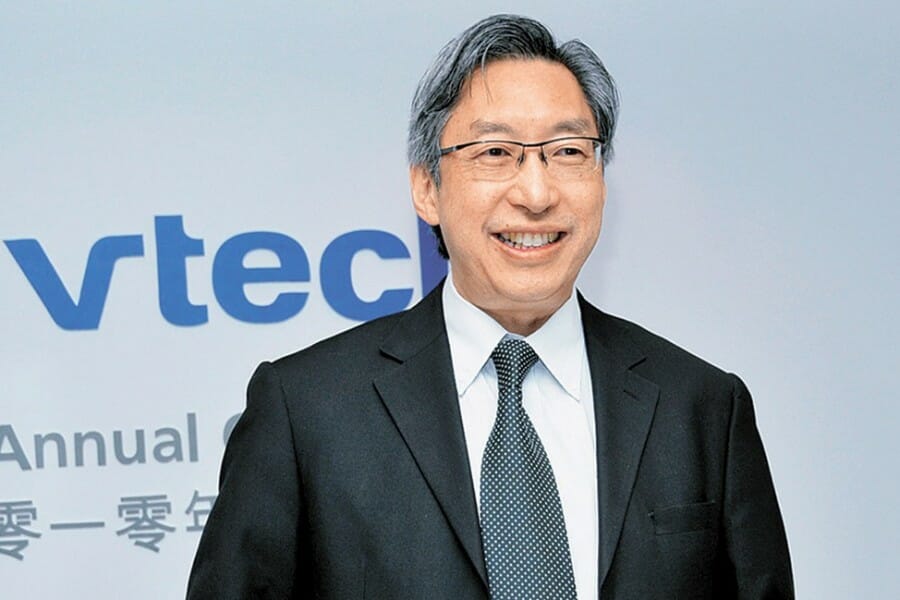
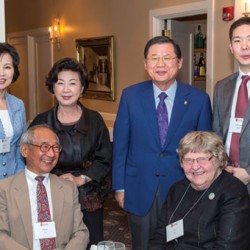

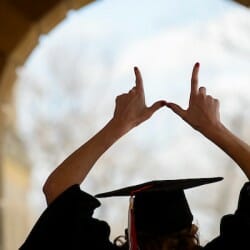
Comments
No comments posted yet.